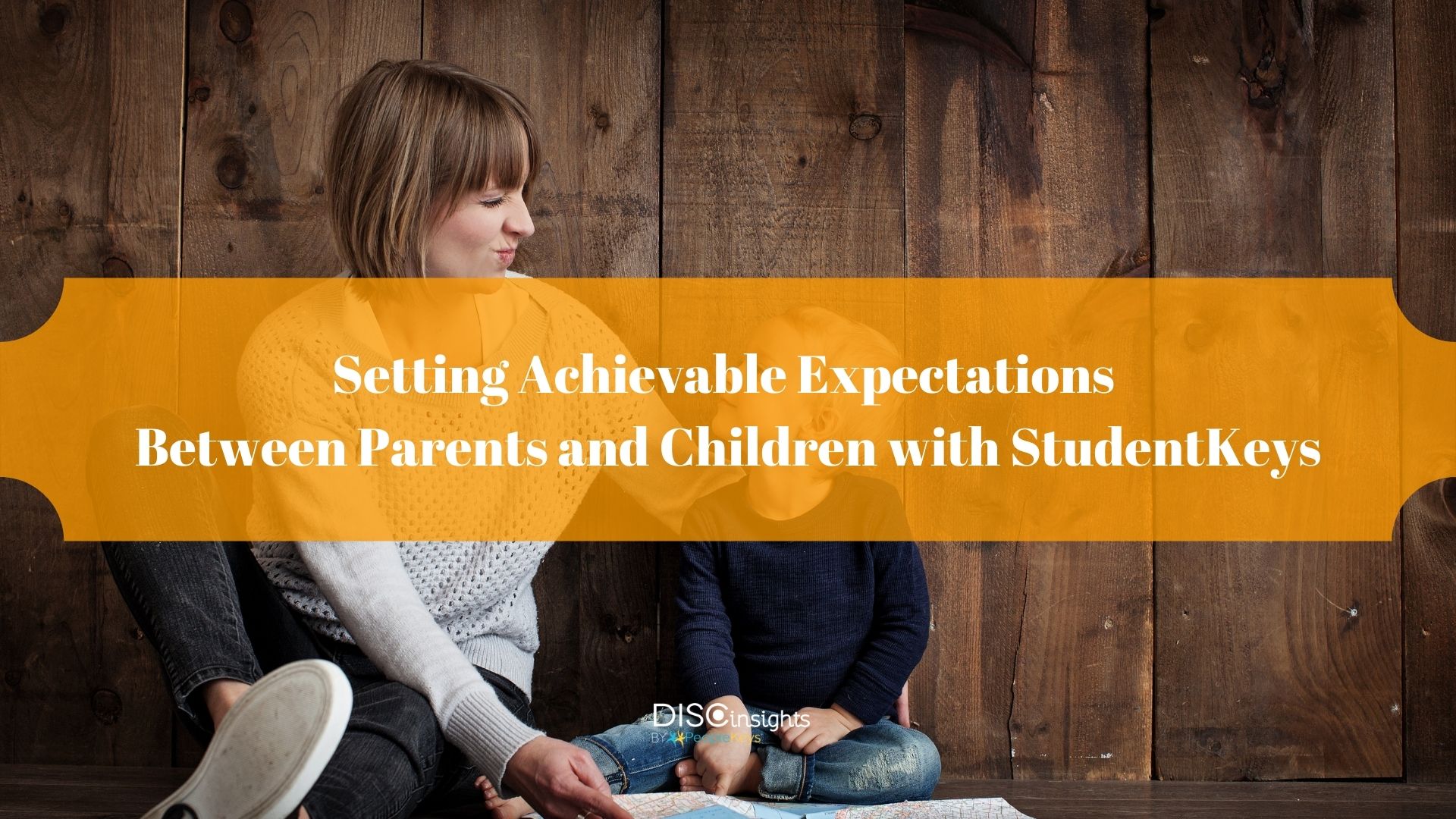- SHOP BY PRODUCT
- DISC TRAINING & CERTIFICATION TOOLS
- DISC RESOURCES
- BLOG
- SHOP BY PRODUCT
- DISC TRAINING & CERTIFICATION TOOLS
- DISC RESOURCES
- BLOG
- ALL ITEMS



Regardless of whether your children attend virtual classes, are home schooled, or in-person classroom sessions, parents and teachers alike desire their children to do well in their studies. It's important to spend some time thinking about and discussing clear expectations of your students' learning progress throughout the year.
Whether parents are explicit about them or not, they have expectations of their children, especially when it comes to performance in school. The intention is to lead the student to success. Quite often, however, the expectations we set out may not actually be realistic or important to the child. PeopleKeys’ proprietary StudentKeys system, consisting of a Student Binder (for the child) and a Leader’s Binder (for the parent) or also available in an online format as the Student Strengths Report, can help parents understand where their expectations derive, help students understand how their parents view the world, and most importantly, help each of them agree on reasonable intentions for the coming school year. As you understand more about each other, you’ll be able to see from the other’s point-of-view and how there may be gaps between how you communicate what you expect from your child and how your child interprets what you say.
DISC theory deals with observable behavior, and people are normally a combination of four main styles: D = Dominant, I = Influencing, S = Steady, and C = Compliant. In table 1 below, you can see the strengths, challenges, and dislikes for each of these main styles. While we aren’t going to cover every possible combination here, once you and your child have learned your respective primary style, you can create expectations that are challenging but attainable.

For example, if you and your child are both strong “D” styles, you both want to be in control. If you can look at this as a chance for your child to take ownership (one way to describe control), you can discuss an overall goal, like “I want to be able to see the floor in your room” and ask them how they would like to reach this goal, how it can be measured, and what the consequences are when the goal isn’t reached. If they resist, let them know this is their chance to create these and if they don’t, you will.
Another insightful section of the StudentKeys System deals with values. When you couple these with the primary DISC styles, the conversation about expectations deepens and both of you can see part of what drives each of you. If your top value is “loyalty” and your daughter’s is “personal freedom”, then expectations set without discussing your differing values only leads to disappointment and frustration.

Your expectations as a parent will most likely come from your experience as a student. “I didn’t need a calculator when I was your age, I did the math in my head!” This naturally feeds what you expect from your son. Once you realize you’re learning style is “auditory” and his learning style is “kinesthetic” (see table 3 below), you may back off of the phrase, “When I was your age…” and ask questions to understand how he best retains information. This will finetune expectations for academic performance, and uncover what resources may be needed in order to reach those expectations.

Before you share your results with each other, develop some ground rules to keep conversations safe. These might include:
There are several other sections of the StudentKeys System which provide more information to help set your son or daughter up for success. It’s a beneficial head-start to becoming self-aware and will help them make better choices for themselves in the future.

© PeopleKeys. All Rights Reserved
WORKING DAYS/HOURS
Mon - Fri / 8:30AM - 5:00PM EST
